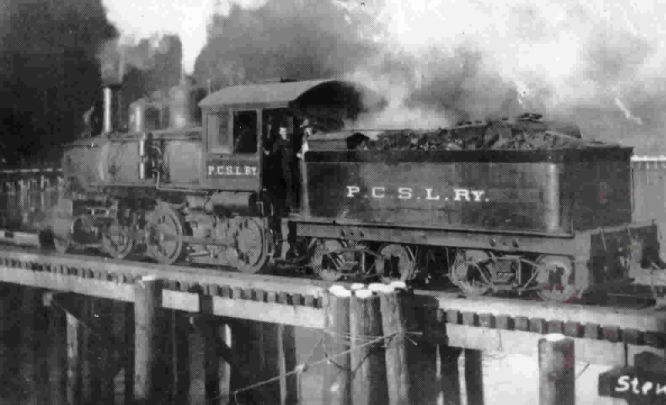History

Chapter 17 - Spirit of Optimism
During the period a spirit of optimism prevailed, which was fully justified from the many mining properties then under development, and they assumed certainty that the railway would be carried through to connect to Edmonton, rendering the town the western terminus of a railway that would open up one of the richest potential areas in Western Canada.
The Shortline Railway would haul the ore from various mines to the dock on the Stewart waterfront. Sir Donald Mann was a great believer in the railway. He was connected with many railway enterprises, but he looked upon the Canadian North Eastern Railway as largely a personal, and he visualized the day when the completion of the road would open an area rich in mineral and agricultural lands. For many years he had familiarized himself with territory through which the road would pass, keeping men in the field, who from time to time reported to him. Heir accumulated information lead him to say, “No railway that crosses the United States or Canada taps such a potential rich area as the Canadian Northeastern Railway will do. My engineers inform me that the grades will be the lowest of any transcontinental railway and tonnage-producing territory exists practically throughout the entire length of the line, and this means profitable hauling both ways. In the Portland Canal area we have mines of considerable promise: in the Nass, timber and agricultural country and, at its head the Groundhog coal fields: then, the mineral territory of the Ominica, and the great Peace River agricultural country, which only needs a short haul for its wheat to make it a banner wheat producing area of Canada.”
NEXT CHAPTER 18